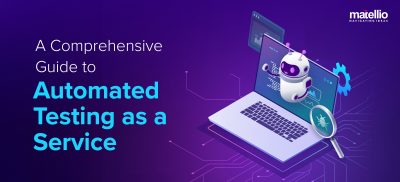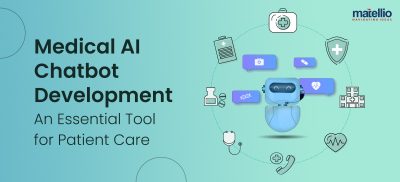
DevOps’ popularity has skyrocketed all across the globe. DevOps is no longer simply a buzzword; most businesses have already implemented it.
Many businesses are turning to DevOps to fill the gap between development and operations. DevOps has never been more important than it is now as businesses embark on the journey of digitalization.
According to the reports by Globenewswire, the global DevOps market is expected to grow at a CAGR of 29.2 percent from USD 4,461.2 million in 2019 to USD 23,362.8 million in 2027.
Source -DevOps has proven itself as a prominent methodology for delivering high-quality software, and the approach looks set to continue.
As many businesses consider the importance of DevOps, they are incorporating it into their business workflows, and the others are on the edge of becoming DevOps-driven. In the world of technology, things change frequently, and this is especially true in the field of DevOps trends.
This blog will help you discover the most recent DevOps trends, which will quicken the speed of innovation, transformation, and digitalization in 2022.
But, before we get into the top DevOps trends for 2022, let’s look at what DevOps is and how it may benefit your business.
What is DevOps?
DevOps is a method of speeding software development processes through methods and applications that improve collaboration among development teams. The primary goal of DevOps is to establish a direct connection between the Development and Operations teams in order to enhance collaboration and communication and deliver better results in less time.
As teams collaborate to develop a market-ready product, DevOps provides several advantages – Rapid development, improved collaboration and response, shorter time-to-market, and other advantages are among them. One of the key reasons for DevOps’s popularity is that it allows for high-quality software delivery.
Why Must Startups and Businesses Consider DevOps Implementation?
The following are a few of the primary benefits and reasons why startups and business owners are adopting DevOps: –
Higher productivity
Whenever it came to the end stages of the operations, the deployment teams had to wait far too long. There was no adequate operating environment, which resulted in delayed operations and reduced overall output. Implementing code adjustments takes a lengthy time, and deployment regularity is minimal. That is not something anyone wants! The company may streamline development and operations by adopting a DevOps approach.
Read More: DevOps Implementation for Business
Enhances team agility
DevOps also aids in the flexibility and agility of teams. It’s all too easy for a startup to become fixated on one product. However, if the market fluctuates or the product requires modification, it becomes difficult for the startup to act decisively. However, with DevOps, a change in the product might be confirmed in a matter of minutes rather than days. If the product is put together faster, the time-to-market is shorter, which lowers the possibility of being outperformed by a competitor.
Offer greater value
Startups are often fast-paced, standard businesses that place a premium on agility. You can focus on what needs it most while still guaranteeing your business runs well by outsourcing your DevOps activities to reliable DevOps consulting services. This enables startups to build trust among employees working very closely together to achieve larger, shared objectives.
Improved customer satisfaction
Customers are far more satisfied with a startup’s product if it has great DevOps. The time saved by employing DevOps enables the business to address customer complaints. Many entrepreneurs have stated that one of the major reasons for their failure is because they ignored their consumers, and unhappy customers equal fewer sales and hence less money to keep the business afloat. It does not matter how good a business is; if a company doesn’t keep its customers satisfied, it will fail.
Regulatory compliance and security standards
Startups can focus on what matters most instead of being dragged down by the everyday tasks of managing a business’s infrastructures using the DevOps approach. Outsourcing such crucial tasks can also help ensure that your company meets all regulatory standards and takes the necessary precautions to protect your customers’ information from unauthorized access.
Top DevOps Trends of 2022!
DevSecOps
DevSecOps is a new DevOps trend that relates to security and DevOps working together. Experts in these teams collaborate closely in a DevSecOps approach to automate laborious and time-consuming tasks. The technological stack and tooling enable them to quickly and securely operate and automate applications. This also enables developers to complete tasks that would ordinarily require assistance from other teams, such as deploying code or building infrastructure, on their own.
According to Verified Market Research, the DevSecOps Market was worth USD 3.73 billion in 2021 and is expected to increase to USD 41.66 billion by 2030, with a CAGR of 30.76 percent from 2022 to 2030.
Benefits of DevSecOps:-
- Change-response capability will enhance
- Security teams will benefit from increased agility and speed
- Communication and coordination between teams greatly improved
- It will assist in the early detection of code flaws
- Ensures run-time security
Infrastructure as code
Infrastructure as code is more than just automation; it’s become an important factor of DevOps. Developers may approach infrastructure the same way they do application coding, thanks to the cloud’s API-driven architecture. Converting all servers, networks, databases, and storage into the accessible and editable mode, enables automation like no one else. It also enables full speed when setting up a comprehensive infrastructure using a script, consistency when deploying the same settings, accountability, traceability, and great efficiency throughout the SDLC.
Benefits of infrastructure as code: –
- Consistency
- Accountability
- Traceability
- Higher Efficiency
- Cloud adoption
Agile & DevOps
By categorizing the many parts of a project, Agile aids in the acceleration of test operations. DevOps enables several teams (development, analysis, and QA) to collaborate and produce a faultless, high-quality result. Both of these techniques are useful for improving a tester’s collaboration abilities. An internal Agile team will be formed as part of the blended model to ensure better collaboration between teams.
Serverless architecture
DevOps consulting services are now focusing on providing solutions that enable the usage of cloud computing to eliminate server management. The serverless architecture will be a big DevOps trend in the future years as businesses seek to reduce the cost of managing servers. Backend tasks performed by cloud providers decrease server administration administrative costs. This will enable businesses to deploy apps to the cloud immediately. The work of today’s development teams will be transformed by the migration from on-premise servers to the cloud. Cloud computing is a fantastic way to deploy apps in real-time.
Chaos engineering
Among the most effective techniques to perform a system security check and avoid any unavoidable crashes is to use chaos engineering. It entails deliberately breaking a system after it has been launched or put into production. This is done to detect flaws and then strengthen the system by eliminating weak links. It assists developers in determining which dangers the system is vulnerable to, in addition to making it less vulnerable to unwelcome attacks after it is launched into real-world contexts. Developers with a thorough understanding of how to discover vulnerabilities in a system and the ability to stay focused through repeated testing and R&D sessions can perform chaos engineering.
Read More: Digital Transformation using Devops
Application performance monitoring
Application performance monitoring (APM) uses a dedicated platform and raw data to track essential software performance parameters. APM is used by DevOps experts to verify that a mobile or web app is operational. It aids with performance, reaction time, and user experience optimization. It’s difficult to detect flaws in a system as applications include lines of code, systems are connected with third-party services, and architectures differ. Because manually sorting through all of the variables is quite hard, APM is used by specialists.
IT operations will increasingly rely on APM. The technology enables DevOps teams to truly understand business operations and detect software interruptions by reducing the average software recovery time.
GitOps
GitOps is another contemporary DevOps trend that improves the efficiency, robustness, security and handle of your SDLC.
GitOps is a relatively new concept to the DevOps culture that automates and manages the entire infrastructure. Teams can utilize GitOps to implement DevOps best practices such as code evaluation, version control, and CI/CD pipelines. The declaration files are automatically stored in a Git repository, which reduces downtime.
AI/ML adoption
AI & ML has the potential to significantly improve DevOps efficiency, making it a must-have for our DevOps trends 2022 list. AI/ML broadens the area of data availability for teams struggling with a shortage of freely available data. Teams can use AI/ML to acquire access to a massive amount of web data and have it scanned for consistent and repetitive analysis. AI/ML also enables the creation of automated settings capable of automating tedious and repetitive daily tasks. As a result, human resources can focus on developing new strategies and innovations.
DevOps automation
DevOps automation attempts to improve software delivery speed, reduce lead time, go to market faster, and improve productivity, flexibility, and agility, among other things. Everything with DevOps, whether it’s building, deploying, or monitoring, moves at a faster pace.
This year, Cloud DevOps Consulting and DevOps will use increasingly advanced and autonomous ways of creating automated outputs from across the lifecycle’s many stages and activities. Robotic process automation solutions, according to DevOps experts, will infiltrate the DevOps ecosystem and aid in the automation of manual and error-prone operations for increased productivity. This integration, facilitated by Cloud DevOps Consulting, will allow teams to reduce the amount of time they spend automating tests.
Why Choose Matellio as Your DevOps Consulting Partner?
Matellio is a leading DevOps services company with years of expertise providing end-to-end DevOps solutions to clients all over the world. Our expert DevOps professionals merge development and operations tasks into a single one. We assist with SDLC optimization, 99 percent manufacturing stability, and delivery cycle automation. Businesses and startups can use our DevOps consulting services to break down silos, increase efficiency, and improve development outcomes. Long-term connections with our clients are important to us as they lead to outstanding business results. For small scale Devops implementation, you can hire devops developer which can manage your project infrastructure and streamline processes.
Conclusion
The aforementioned trends help to enhance the delivery and deployment of new services. It saves time and money, accelerates product release to market, improves search results, and resolves infrastructure issues.
Implementing DevOps into your business has become a must in today’s competitive business environment, and businesses have already begun to see significant rewards. In 2022, businesses that implement DevOps will outperform their technological competitors and drive commercial success.
Want to adopt DevOps strategies or looking for the best DevOps consulting services? Let’s team up!




